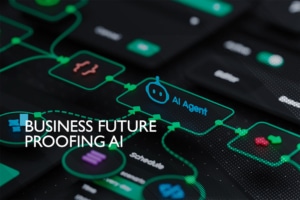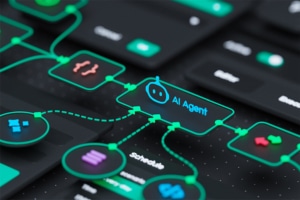Future-Proofing Your Milwaukee Business
AI Readiness Assessment
Years in Business
Completed Projects
Business future proofing AI represents the strategic imperative that will determine which Milwaukee companies thrive in the rapidly evolving digital landscape. According to PwC’s latest research, 75% of businesses plan to adopt AI technologies by 2026, creating an urgent need for comprehensive readiness assessment.

Milwaukee Web Design has guided numerous local businesses through successful AI transformation journeys. These implementations demonstrate how proper planning and assessment create sustainable competitive advantages in an increasingly automated marketplace.
The stakes have never been higher for business leaders who recognize that future success depends on technological adaptability and strategic foresight. Smart companies begin their AI readiness assessment immediately to avoid costly delays and missed opportunities.
Milwaukee’s business environment presents unique opportunities and challenges for AI future readiness implementation. Local manufacturing companies, healthcare organizations, and financial services firms must navigate regulatory requirements while pursuing innovation.
Recent studies indicate that 68% of mid-sized businesses lack comprehensive AI strategies despite recognizing technology’s importance for long-term viability. This gap creates significant opportunities for early adopters who invest in proper assessment and planning processes.
The Wisconsin Technology Council reports that state businesses investing in technology modernization achieve 23% higher revenue growth compared to companies maintaining traditional approaches. Milwaukee business modernization AI initiatives demonstrate how regional companies leverage artificial intelligence for sustainable growth.
Local market dynamics favor businesses that combine human expertise with AI capabilities to serve customers more effectively. Companies understanding this hybrid approach position themselves advantageously for future market conditions and competitive pressures.
Effective AI readiness evaluation begins with thorough analysis of current technology infrastructure, data management capabilities, and organizational readiness for change. Companies must examine their digital maturity levels before pursuing advanced automation solutions.
Data quality assessment forms the foundation of successful AI implementation, as algorithms require clean, structured information to deliver accurate results. Professional assessment tools help businesses identify data gaps and preparation requirements for optimal AI performance.
Financial planning considerations include initial investment costs, ongoing maintenance expenses, and expected return timelines. Harvard Business Review research shows that companies allocating 15-20% of technology budgets to AI initiatives achieve the highest success rates.
Leadership commitment and employee engagement represent critical success factors that determine implementation outcomes. Organizations with strong change management processes report 40% higher AI adoption success rates compared to companies lacking structured approaches.
Southeast Wisconsin technology future proofing requires comprehensive evaluation of these interconnected factors to ensure successful outcomes and sustainable competitive advantages.
Successful AI implementation demands phased approaches that minimize disruption while maximizing value creation opportunities. Smart companies begin with pilot projects that demonstrate clear ROI before expanding to comprehensive automation solutions.
Process mapping identifies high-impact areas where artificial intelligence delivers immediate benefits through efficiency improvements and cost reductions. Manufacturing companies typically start with quality control automation, while service businesses focus on customer communication enhancement.
Integration planning ensures seamless connectivity between existing systems and new AI technologies. Modern development approaches create unified platforms that enhance rather than complicate current operational workflows.
Training programs prepare teams for collaborative work with AI systems, building confidence and competency that supports long-term success. Companies investing in comprehensive employee education report 50% higher satisfaction rates with technology implementations.
Industry research confirms that structured implementation planning reduces deployment timelines by 30-40% while improving overall project success rates significantly.
Effective measurement systems track both quantitative metrics and qualitative improvements that demonstrate AI implementation value. Key performance indicators should include productivity gains, cost reductions, customer satisfaction improvements, and employee engagement levels.
Regular assessment cycles ensure AI systems continue delivering expected benefits while identifying optimization opportunities for enhanced performance. Monthly reviews allow companies to adjust strategies based on real-world results and changing business requirements.
Benchmark comparisons against industry standards help businesses understand their competitive positioning and identify areas requiring additional investment or refinement. ROI tracking methodologies provide frameworks for continuous improvement and strategic decision-making.
Success metrics should encompass both immediate operational improvements and long-term strategic advantages that support sustainable growth objectives. Companies maintaining this balanced perspective achieve superior results compared to organizations focusing solely on short-term gains.
Continuous optimization processes ensure AI systems evolve alongside business needs and technological advances. This iterative approach maximizes return on investment while building foundations for future innovation and market leadership throughout Southeast Wisconsin.
Forward-thinking Milwaukee businesses recognize that AI future readiness creates lasting competitive advantages that compound over time. Early adopters establish market leadership positions that become increasingly difficult for competitors to challenge.

Scalability advantages emerge as AI systems handle increasing workloads without proportional cost increases. Unlike traditional business expansion models, technology future proofing enables rapid growth without corresponding infrastructure investments or staffing challenges.
Market positioning improves dramatically for companies demonstrating technological sophistication and operational excellence through AI implementation. Customers increasingly prefer working with businesses that leverage advanced technologies for superior service delivery and reliability.
Long-term sustainability depends on continuous innovation and adaptation to evolving market conditions. Companies establishing strong AI foundations today build platforms for ongoing technological advancement and sustained competitive leadership throughout changing business environments.
The urgency for action continues intensifying as competitors advance their own AI initiatives and market expectations rise accordingly. Milwaukee businesses must begin their readiness assessment immediately to secure advantageous positioning for future success and growth opportunities.
Business future proofing AI involves implementing artificial intelligence technologies strategically to ensure long-term competitiveness and adaptability. Milwaukee companies need this approach to stay competitive as 75% of businesses plan AI adoption by 2026.
AI readiness assessment involves evaluating current technology infrastructure, data quality, employee skills, financial resources, and business processes. Companies should examine their digital maturity, change management capabilities, and strategic goals alignment.
Ready businesses have clean data systems, defined processes, leadership buy-in, adequate budget allocation, and clear success metrics. They also demonstrate openness to change and have identified specific AI use cases that align with business objectives.
Implementation timelines vary from 3-12 months depending on complexity and scope. Simple automation projects may take 3-6 months, while comprehensive AI transformation can require 8-12 months for full deployment and optimization.
Studies show businesses implementing AI strategies see average ROI of 300-400% within 18 months. Cost savings through automation, improved decision-making, and enhanced customer experiences drive these returns for forward-thinking companies.
Web services are more than just website creation. They involve strategically crafting an experience that engages users, builds credibility, and turns your target audience into loyal customers.
Marketing goes beyond promoting products—it’s about telling a powerful brand story that builds trust, nurtures community, and drives meaningful business growth.
Book your no-obligation strategy session today and receive a complimentary custom homepage design. Limited to just 5 spots per month—reserve yours before they’re gone.

